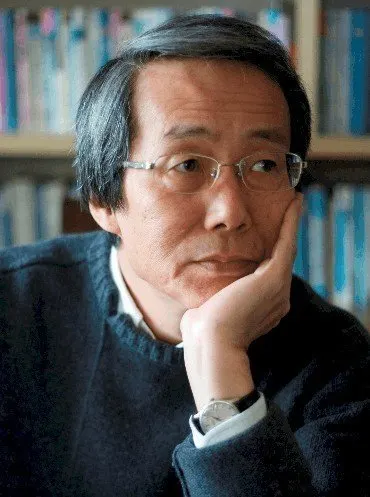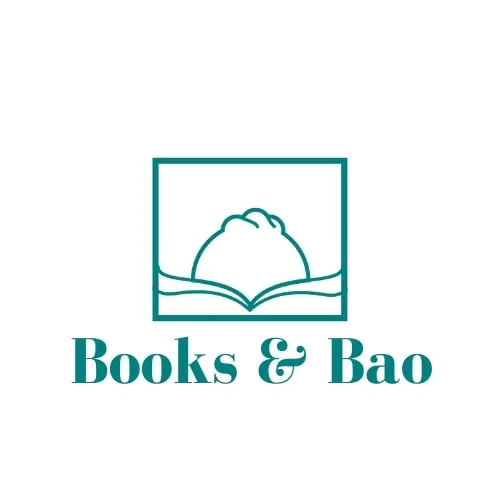Here is one of those rare books that has a lot to unpack – metaphor, motifs, motivations – but proves to be, nonetheless, completely accessible. More than that, it is compelling, carried by a desperate forward momentum that pleads with the reader to keep pushing on. It has all the page-turning fervour of a thriller but with the kind of metaphors written to be studied in the classroom.
Beyond all of that, it is another contemporary Taiwanese book available in English, and the world needs a lot more of those. Taiwan is, after all, a treasure trove of artistic delights.

Find your Soul
Cut into four distinct acts, My Enemy’s Cherry Tree begins with our protagonist, a man whose wife left him. We don’t know how, why, or when, only that he desperately wants her to return, and so has opened a coffee shop in her favourite little town in the south of Taiwan, hoping to lure her back to him.
The first act is a short, ethereal, meandering look into the shattered mind and shattered life of this man. We learn that the town is home to Luo Yiming, a former banker and infamous philanthropist worshipped by the people of the town.
“’If you leave me, I’ll come here to wait for you every day. Don’t forget. I mean it.’ When fate lays a baffling tragedy at your door, it can often be traced to a playful remark made years before. But she had it wrong; she was the one who chose to run away from home.”
Yet our protagonist blames Mr. Luo for the disappearance of his wife. When Mr. Luo falls ill, his daughter comes to the coffee shop filled with rage, only for her heart to soon soften and for her to extend an invitation to our protagonist: bare your soul, tell me your story.
Most of the rest of this novel is our nameless protagonist’s life story, separated into his childhood, his life with Qiuzi – his wife – and his job working for a construction/real estate firm. All of this will lead us to the reason why his wife left him, though it is hinted at rather heavily in the first act.
The Right Way to Love Someone
Our protagonist’s youth was not a kind one, as we learn in Act II, partly through circumstances beyond his control and also due to his perception of his life and the world around him. His anonymity and his intimate perspective work in tandem to confuse and distance the reader. We want to support him, understand him, but we can’t. We don’t know him, and we don’t know if he is wholly good or not.
This incredibly delicate balance achieved by both the author, Wang Ting-Kuo, and the translator team of Howard Goldblatt and Sylvia Li-Chun Lin, is pulled off with wonderful finesse, clouding our protagonist in an air of suspicion and misdirection.
There is a rhythm to his mind, presented to us by frequently repeated motifs of chance and secrecy. Our protagonist muses many times on the miracle of luck and chance; he ponders how incredible it is that the random urge to purchase jam brought him to a coffee shop he had never noticed, which in turn led him to meet his future wife.
His obsession with chance and fortune highlights a man who believes himself unworthy of anything grand; a man undeserving.

In opposition to his poetic waxing over the luck of meeting his perfect woman is their unhappy marriage, his distance from her, and his distracted focus on his job.
He tells the reader many times things that he admits he could never share with his wife – sad moments from his childhood, hidden desires and ideas. There is, in his mind, an ideal life and a realised life. He spends his marriage trying to blend the two.
“She’d photographed the roses in the vase on the table, neighbourhood children, the busy florist, and the park, emptied of visitors, all snapshots, all highlighting her loneliness during my absence. I could tell that the camera had failed to expand her horizons. Instead, her lens had actually exposed the narrow confines of our life.”
The novel itself has an obsession with our protagonist’s job, which is explained in painstaking details and yet lacks any real substance. Even fully understanding what it is he does is a chore. His boss is given only a nickname, and we learn that this boss is the youngest one of eight corporate brothers.
They are not named or described, and there is a wonderful comic book vibe to them as they appear to be draped in hollow mystique, presented as nothing more than capitalistic corporate shadows.
In a wonderful bending of the relationship between story and execution, the protagonist’s choice to pour all of his energy into his job, and thus neglect even really knowing Qiuzi, is cleverly reflected in his own storytelling, as we the audience spend too much time at his job.
His confession about his marriage often blurs into a spilling of pride about the progress he made in advancing his career. He cannot help, even in confession, even in the search for his soul, but sing his own professional praises. This is a double-edged sword. It’s clever execution, but it is also boring for us. We don’t know his job; we don’t care about it; but we must suffer through it to understand the point that the author is hammering home.
“I had been running all these years … and it turned out that this time I was wrong to run. She was merely an innocent bystander, an unlucky girl I’d dragged along behind me.”
Conclusion
My Enemy’s Cherry Tree is a complex tale of how we choose to love and show our love. It presents us with an ordinary man, a corporate job, a dissatisfied wife, and a life never really lived or loved.
Our protagonist does not know his wife, and confuses her with his idea of her. More tragic than this, perhaps, is that he does not know himself. There is an underlying theme of anti-capitalism that is left intentionally unexplored as our protagonist himself seems not to fully grasp it.
The clever dichotomy between an all-knowing author layering themes into his work and a narrator who does not fully understand these themes is phenomenally clever. We are left not knowing how to feel about this man, as he knows not how to feel about himself. And a final note of gushing goes to the translation: this is the finest work of literary translation that I have ever enjoyed. It is poetic, rhythmic, and seamless. I was infinitely impressed at every turn of the page.
If you want to visit the magical home of this great author for yourself, here are 10 Easy Day Trips from Taipei.
If you enjoyed this review and want more Taiwanese literature, check out our review of The Stolen Bicycle by Wu Ming-Yi
